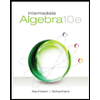Prove the following statement directly from the definition of rational number. The difference of any two rational numbers is a rational number. Proof: Supposer and s are any two rational numbers. By definition of rational, r = and s= for some ---Select--- a b d Writer - s in terms of a, b, c, and d as a quotient of two integers whose numerator and denominator are simplified as much as possible. The result is the following. r-s= Both the numerator and the denominator are integers because ---Select--- In addition, bd 0 by the ---Select--- Hence r - s is a ---Select--- of two integers with a nonzero denominator, and so by definition of rational, r- s is rational. ✓a, b, c, and d with ---Select---
Prove the following statement directly from the definition of rational number. The difference of any two rational numbers is a rational number. Proof: Supposer and s are any two rational numbers. By definition of rational, r = and s= for some ---Select--- a b d Writer - s in terms of a, b, c, and d as a quotient of two integers whose numerator and denominator are simplified as much as possible. The result is the following. r-s= Both the numerator and the denominator are integers because ---Select--- In addition, bd 0 by the ---Select--- Hence r - s is a ---Select--- of two integers with a nonzero denominator, and so by definition of rational, r- s is rational. ✓a, b, c, and d with ---Select---
Algebra & Trigonometry with Analytic Geometry
13th Edition
ISBN:9781133382119
Author:Swokowski
Publisher:Swokowski
Chapter1: Fundamental Concepts Of Algebra
Section1.4: Fractional Expressions
Problem 84E
Related questions
Question
need help

Transcribed Image Text:Prove the following statement directly from the definition of rational number.
The difference of any two rational numbers is a rational number.
Proof: Supposer and s are any two rational numbers. By definition of rational, r = and s =
b
d
for some
r-s=
---Select---
Writers in terms of a, b, c, and d as a quotient of two integers whose numerator and denominator are simplified as much as possible. The result is the following.
a, b, c, and d with ---Select---
Both the numerator and the denominator are integers because --Select---
In addition, bd 0 by the ---Select---
Hence r s is a ---Select---✓of two integers with a nonzero denominator, and so by definition of rational, r- s is rational.
Expert Solution
This question has been solved!
Explore an expertly crafted, step-by-step solution for a thorough understanding of key concepts.
Step by step
Solved in 3 steps with 21 images

Recommended textbooks for you

Algebra & Trigonometry with Analytic Geometry
Algebra
ISBN:
9781133382119
Author:
Swokowski
Publisher:
Cengage

Algebra for College Students
Algebra
ISBN:
9781285195780
Author:
Jerome E. Kaufmann, Karen L. Schwitters
Publisher:
Cengage Learning

Intermediate Algebra
Algebra
ISBN:
9781285195728
Author:
Jerome E. Kaufmann, Karen L. Schwitters
Publisher:
Cengage Learning

Algebra & Trigonometry with Analytic Geometry
Algebra
ISBN:
9781133382119
Author:
Swokowski
Publisher:
Cengage

Algebra for College Students
Algebra
ISBN:
9781285195780
Author:
Jerome E. Kaufmann, Karen L. Schwitters
Publisher:
Cengage Learning

Intermediate Algebra
Algebra
ISBN:
9781285195728
Author:
Jerome E. Kaufmann, Karen L. Schwitters
Publisher:
Cengage Learning

Holt Mcdougal Larson Pre-algebra: Student Edition…
Algebra
ISBN:
9780547587776
Author:
HOLT MCDOUGAL
Publisher:
HOLT MCDOUGAL

Algebra: Structure And Method, Book 1
Algebra
ISBN:
9780395977224
Author:
Richard G. Brown, Mary P. Dolciani, Robert H. Sorgenfrey, William L. Cole
Publisher:
McDougal Littell

College Algebra (MindTap Course List)
Algebra
ISBN:
9781305652231
Author:
R. David Gustafson, Jeff Hughes
Publisher:
Cengage Learning